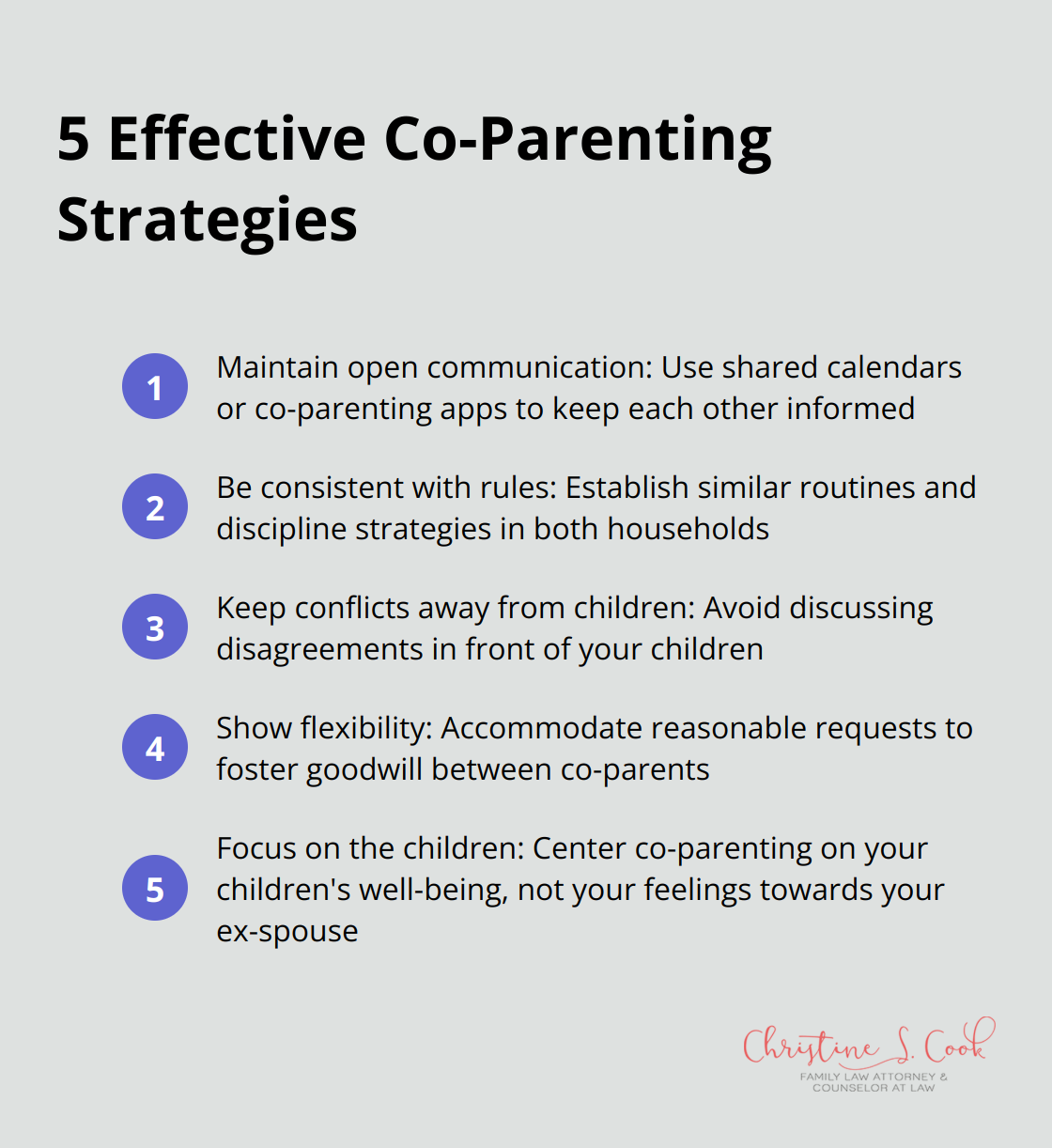Divorce can be a challenging and emotionally draining process. At Christine Sue Cook, LLC, we understand the complexities involved and the need for support during this difficult time.
Our guide on navigating divorce and seeking support aims to provide you with practical insights and strategies. We’ll cover essential aspects of the divorce process, emotional and financial considerations, and child custody arrangements to help you make informed decisions.
When you consider divorce, start by collecting crucial documents. These include financial records, property deeds, and any prenuptial agreements. Your next step should be to consult with a family law attorney. Florida doesn’t require proof of fault to file for divorce. The state only asks that the marriage is “irretrievably broken.”
To file for divorce in Florida, at least one spouse must have lived in the state for six months before filing. You must file a petition for dissolution of marriage with the circuit court in your county. The filing fee typically costs around $400 (though this can vary by county).
Divorces fall into two categories: contested and uncontested. An uncontested divorce occurs when both parties agree on all issues, including property division, alimony, and child custody. These divorces usually proceed more quickly and cost less, with agreements typically reached in 3 to 9 months.
Contested divorces happen when spouses disagree on one or more issues. These cases often require mediation or court intervention.
Florida courts often require couples to attempt mediation before going to trial. Mediation can help resolve disputes and avoid a lengthy court battle. In 2025, Florida mediation achieved a success rate of approximately 70-80% across both family and civil cases.

Each divorce is unique. The process can take anywhere from a few months (for simple, uncontested cases) to over a year (for complex, contested divorces). Understanding these basics can help you prepare for the journey ahead and make informed decisions about your future.
As we move forward, let’s explore the emotional and financial considerations that often accompany the divorce process. These factors play a significant role in shaping the overall experience and outcomes of a divorce.
Divorce triggers a range of emotions, from anger and sadness to anxiety and relief. It’s important to acknowledge these feelings and find healthy ways to process them. Many individuals find success with the following strategies:
The financial aspects of divorce can overwhelm many. Here are steps to help you navigate this process:
Navigating divorce without professional guidance can result in costly mistakes. We strongly recommend seeking support from:
Investing in professional support now can save you significant stress and potential financial loss in the future. (Christine Sue Cook, LLC offers comprehensive legal support to guide you through every step of your divorce journey.)
While the legal and financial aspects of divorce demand attention, emotional healing is equally important. Consider these strategies:

As we move forward, let’s explore another critical aspect of divorce: child custody and co-parenting. These elements often present unique challenges and require careful consideration to ensure the best outcomes for all involved parties.
Florida courts recognize two primary types of custody: legal custody and physical custody. Legal custody refers to decision-making authority for the child’s welfare, while physical custody determines where the child lives. Courts prioritize the child’s best interests when making custody decisions.
Florida courts typically favor shared parental responsibility. This arrangement gives both parents equal say in major decisions affecting their child’s welfare. It encourages active involvement from both parents in their child’s life. However, in cases where one parent proves unfit or incapable, the court may grant ultimate responsibility to one party.
Physical custody in Florida operates under the concept of time-sharing. Parents should create a time-sharing schedule that works for their family. Common schedules include:
Each family’s situation requires a unique solution. There’s no one-size-fits-all approach to time-sharing schedules.
Florida law requires divorcing parents to submit a parenting plan to the court. This document outlines how parents will share responsibilities and make decisions regarding their children. A well-crafted parenting plan typically includes:
Parents should be as specific as possible when creating their parenting plan. This clarity can prevent future conflicts and ensure smooth co-parenting.
Successful co-parenting after divorce requires effort and commitment from both parents. Here are some strategies that can help:

Cooperative co-parenting after relationship dissolution is associated with increased father involvement, which can buffer against the negative effects of parental separation.
Divorce involves complex legal, emotional, and financial aspects. Understanding Florida’s divorce process helps you prepare for the journey ahead. We recommend seeking support through therapy, counseling, or support groups to manage emotional stress during this challenging time. Professional guidance from financial advisors can provide critical insights into long-term financial stability post-divorce.
For parents, child custody and co-parenting present unique challenges. Creating comprehensive parenting plans and adopting effective co-parenting strategies ensure the well-being of children after divorce. Time-sharing schedules and shared parental responsibility play key roles in successful co-parenting arrangements.
Professional legal representation protects your rights and guides you through complex legal procedures. Christine S. Cook, LLC offers expert legal services in family law, providing compassionate solutions for divorce and support. Our client-centered approach addresses your unique needs with care and expertise.
